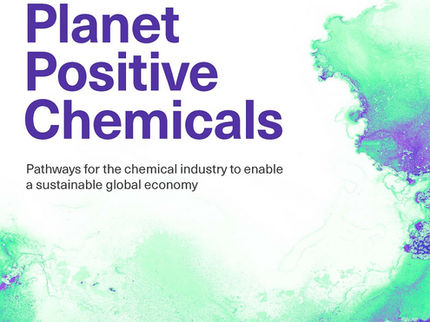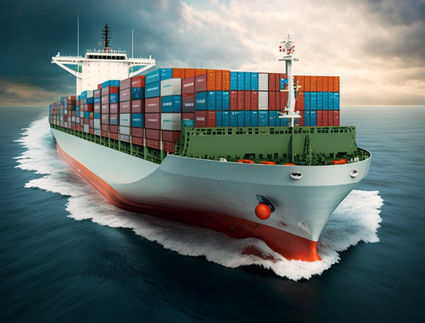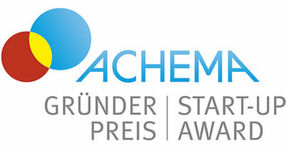From Emissions to Solutions
CO2-Based Graphite, Plastics, and Methanol win big at “Best CO2 Utilisation 2025” Innovation Award
Advertisement
UP Catalyst, Far Eastern New Century Corporation, and Oxylus Energy were recognised at the “Best CO2 Utilisation 2025” Innovation Award for transforming carbon emissions into high-performance battery materials, sustainable plastics for footwear and textiles, and Methanol fuel, marking major strides toward a renewable carbon future.
A total of 230 participants and 45 speakers from around the globe took part in this year’s Innovation Award Ceremony, held as a highlight of the CO2-based Fuels and Chemicals Conference 2025, both in Cologne, Germany, and online. Recognised as one of the leading international gatherings for the Carbon Capture and Utilisation (CCU) and Power-to-X sectors, the 13th edition of the event highlighted cutting-edge developments in this rapidly evolving field.
Six nominees presented their pioneering CCU technologies to a broad audience of international CCU specialists. Attendees then cast their votes in real time to determine the three winners of the “Best CO2 Utilisation 2025” Innovation Award.
The winning innovations – ranging from battery-grade graphite derived from CO2, to non-isocyanate polyurethanes (NIPU), and carbon-negative methanol production – mark important steps towards reducing dependence on fossil-based resources.
The innovation award “Best CO2 Utilisation 2025” goes to UP-Catalyst
The prestigious innovation award for “Best CO2 Utilisation 2025” has been awarded to the Estonian company UP Catalyst in recognition of their development of battery-grade graphite derived from CO2 emissions.
UP Catalyst has pioneered a process that utilises Molten Salt CO2 Capture and Electrochemical Conversion (MSCC-EC) technology to convert CO2 emissions into durable carbon materials, including graphite and carbon nanotubes (CNTs). Their approach boasts the lowest energy consumption per tonne of graphite produced.
This advanced method enables the continuous production of carbon materials at temperatures between 500 and 750 °C – markedly lower than the 2,800 °C typically required for conventional graphite synthesis. As a result, the technology consumes about half the energy needed for traditional synthetic graphite production and up to 20 times less energy for CNT production.
Far Eastern New Century Corporation received the second prize for its innovative FENC® TopGreen® CO2-based NIPU technology. The Taiwan-based company has developed the world’s first non-isocyanate polyurethane (NIPU) derived from CO2, creating high-performance elastomeric materials.
In contrast to conventional thermoplastic polyurethanes (TPUs), which depend on toxic materials such as phosgene and isocyanates, this proprietary NIPU technology provides a safer and more sustainable alternative. It is particularly suited to applications including waterproof and breathable membranes, shoe uppers and midsoles, elastic fibres, and synthetic leather.
By employing carbon capture technology developed by the Far Eastern Group, CO2 is converted into chemical compounds with a CO2 content exceeding 50%, which are then used in advanced polymer production processes to manufacture CO2-based NIPU elastomers at scale, achieving permanent carbon capture. This innovation results in a reduction of carbon emissions by up to 58% compared to traditional TPU production, while maintaining outstanding performance and sustainability.
Oxylus Energy, a US-based company, was awarded third prize for its innovative direct electrochemical method for producing green methanol. The company’s Methanol Producing Electrolyser converts industrial CO2 emissions directly into sustainable methanol using only renewable electricity and water.
This cutting-edge technology enables the production of carbon-neutral and even carbon-negative methanol at a cost competitive with fossil-derived methanol. By transforming CO2 emissions into a liquid product, the process not only facilitates direct decarbonisation of industrial outputs but also presents a commercially viable solution to defossilise the hard-to-abate sectors such as aviation, maritime transport, and chemical manufacturing, together accounting for approximately 11% of global greenhouse gas emissions.
Other news from the department business & finance
Most read news
More news from our other portals
Something is happening in the chemical industry ...
This is what true pioneering spirit looks like: Plenty of innovative start-ups are bringing fresh ideas, lifeblood and entrepreneurial spirit to change tomorrow's world for the better. Immerse yourself in the world of these young companies and take the opportunity to get in touch with the founders.
See the theme worlds for related content
Topic World Battery Technology
The topic world Battery Technology combines relevant knowledge in a unique way. Here you will find everything about suppliers and their products, webinars, white papers, catalogs and brochures.

Topic World Battery Technology
The topic world Battery Technology combines relevant knowledge in a unique way. Here you will find everything about suppliers and their products, webinars, white papers, catalogs and brochures.
































































